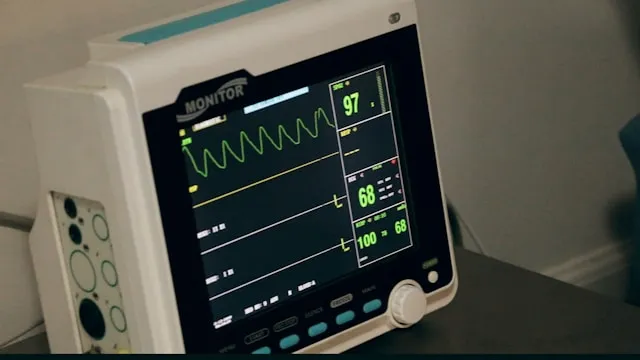What is portal hypertension?
Portal hypertension refers to an increase in the blood pressure within a system of veins known as the portal venous system. The portal vein is drained by veins coming from the stomach, spleen, intestine and pancreas, which then branches into smaller vessels throughout the liver. Liver damage blocks the vessels in liver, disallowing blood to flow properly through the organ. This condition results in a higher blood pressure in the portal vein system that may result in large, swollen veins (varices) within the oesophagus, stomach, and rectum or near the belly button. Varices can bleed and rupture, which can cause life-threatening complications.What are the causes of the disorder?
Portal hypertension results from obstruction of blood flow through the liver, which increases the blood pressure in the portal vein. The obstruction may be intrahepatic, pre-hepatic or post-hepatic. The most common cause for portal hypertension is cirrhosis of the liver caused by hepatitis, alcohol or other causes of liver damage. The cirrhosis (or scarring) blocks blood flow through the liver, slowing its function. Other causes of portal hypertension may include:- Blood clots in portal vein
- Vein blockages between liver and heart
- Parasitic infection (Schistosomiasis)
- Focal nodular hyperplasia (commonly seen in persons infected with HIV virus)
What one needs to know about symptoms or signs?
Onset of portal hypertension may not always signal abnormal working of the liver. However, persons with liver disease that progresses to cirrhosis are at a greater risk of developing portal hypertension. Common symptoms of portal hypertension include:- Black, tarry stools or blood in stools indicating gastrointestinal bleeding; vomiting of blood due to spontaneous rupture and haemorrhage from varices.
- Accumulation of fluid in the abdomen (ascites).
- Poor liver function causing encephalopathy, state of confusion or forgetfulness.
- Reduction in level of platelets (that help form blood clots) or white blood cells (cells that fight infection).
Which specialist should be consulted in case of signs and symptoms?
If a patient shows signs of portal hypertension, s/he may be referred to a gastroenterologist (doctor who specialises in the digestive system) or a hepatologist (doctor who specialises in treating liver disorders).What are the screening tests and investigations done to confirm or rule out the disorder?
Portal hypertension is only diagnosed when the process has already begun in the body, and one or more complication that results from this condition, begin to show. A doctor looks for a condition like portal hypertension when a patient begins to show gastrointestinal bleeding or develops ascites. The condition is confirmed through blood tests, X-rays, computed tomography (CT) scan, magnetic resonance imaging (MRI) and endoscopy. The exact pressures in the portal vein are not routinely measured, except in specific situations like during the TIPS procedure.What treatment modalities are available for management of the disorder?
Most causes of portal hypertension cannot be treated. Treatment focuses on preventing or managing complications, like the bleeding from the varices. Treatment methods depend on the severity of symptoms and the functioning of the liver, and may include diet modification, medication, radiology procedures, endoscopy therapy and surgery.- Medications - (a) Non-selective beta-blockers are prescribed, either alone or in combination with endoscopy therapy to reduce the pressure in the varices and the risk of bleeding. These medicines also prevent a first variceal haemorrhage in patients who are at risk of developing bleeding. (b) Oesophageal variceal banding is used in patients who cannot take beta-blockers. (c) Drugs are also prescribed to treat confusion and other mental changes that are associated with encephalopathy.
- Endoscopy therapy - This generally forms the first line of treatment for variceal bleeding. It is carried out through either banding or sclerotherapy. During banding, a gastroenterologist uses rubber bands to block off blood vessel to stop bleeding. Sclerotherapy is used when banding is not possible - it involves injecting a blood-clotting solution into the bleeding varices to counter bleeding.
- Lifestyle changes - Good nutritional habits and a healthy lifestyle help prevent portal hypertension. Liver function can be improved through the following:
- Avoiding alcohol or drugs.
- Avoiding over-the-counter drugs and herbal medication without a doctor's consultation.
- Following a dietary guideline set by the healthcare provider that includes a low-sodium diet and a reduced protein intake
- Other treatment options - If the above treatments are unable to control variceal bleeding, the following procedures may be recommended to reduce pressure in veins:
-
- Transjugular intrahepatic portosystemic shunt (TIPS): A stent is placed in the middle of the liver, and connects the hepatic vein with the portal vein, rerouting blood flow in liver and relieving the abnormal pressure in veins.
- Distal splenorenal shunt (DSRS): This procedure connects the vein from spleen to the vein from the left kidney, and reduces the pressure in the varices, helping control bleeding.
What are the known complications in management of the disorder?
Complications of portal hypertension may include:- Bleeding from oesophageal or gastric varices.
- Ascites, leading to spontaneous bacterial peritonitis, hepatorenal syndrome or hepatic hydrothorax.
- Pulmonary complications, like portopulmonary hypertension and hepatopulmonary syndrome.
- Liver failure.
- Hepatic encephalopathy.
- Cirrhotic cardiomyopathy.
How can the disorder be prevented from happening or recurring?
Liver diseases due to inborn defects in metabolism like copper and iron cannot be prevented. However, portal hypertension is basically a complication of an underlying liver disease that can be controlled, but requires patients to comply with dietary restrictions and abstinence from alcohol and drugs. (Chronic alcoholism leads to cirrhosis and portal hypertension, and IV drug abuse can cause hepatitis B and C infection, leading to cirrhosis.) Click here to visit the best Liver doctors in Delhi/NCR! Credihealth is always happy to help! Source: "Portal hypertension," Medscape.com, Jesus Carale, https://emedicine.medscape.com/article/182098-overview "Portal hypertension," MedicineNet.com, Benjamin Wedro, https://www.medicinenet.com/portal_hypertension/article.htm "Portal hypertension," Patient.co.uk, https://www.patient.co.uk/doctor/Portal-Hypertension.htm "What Is Portal Hypertension?" WebMD.com, https://www.webmd.com/digestive-disorders/digestive-diseases-portal image source: gi.jhsps
Reviewed by







